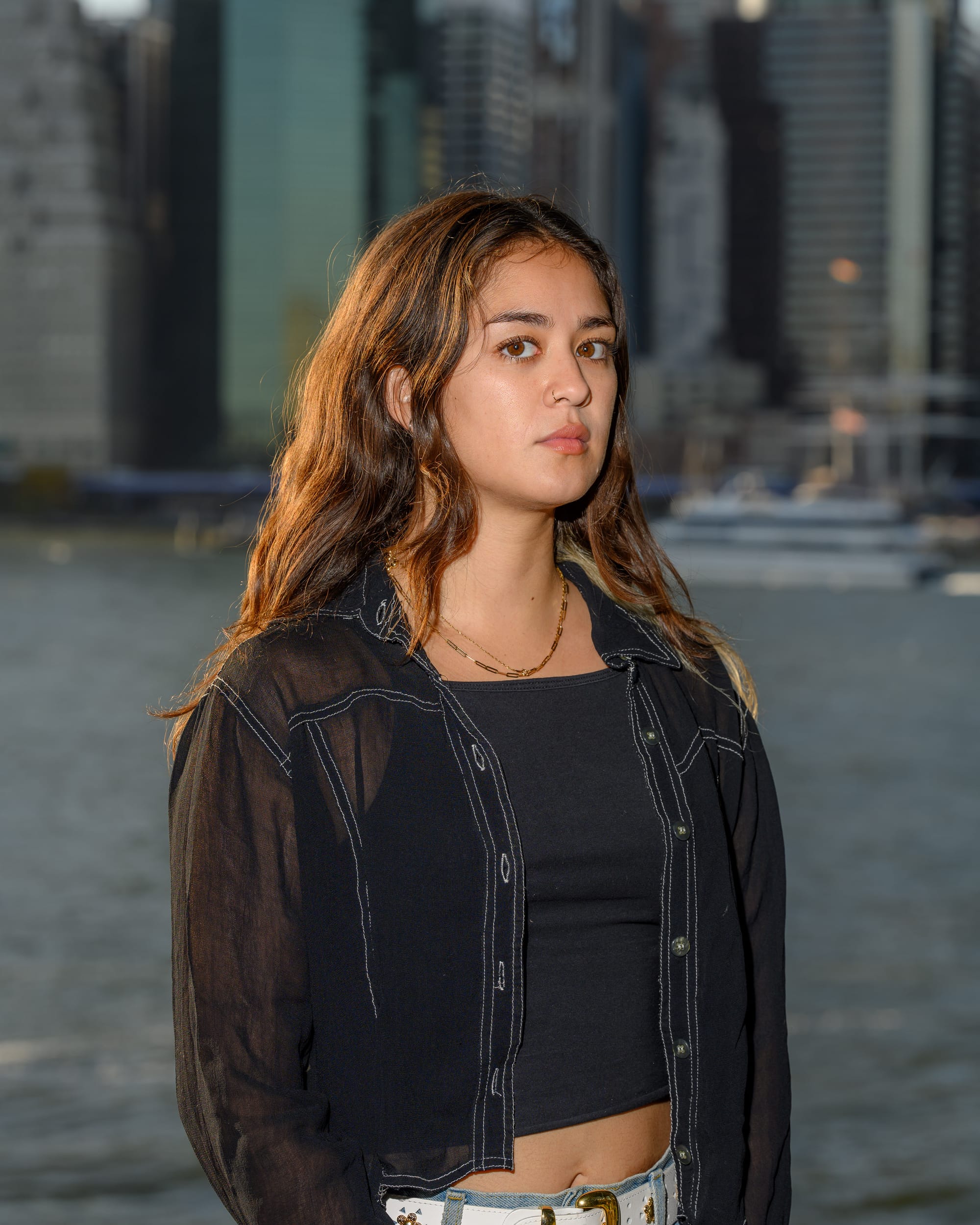If you're nosy like me, you might imagine being a location scout is a dream job—getting to walk into people's homes, look at all their stuff, and take pictures to dissect later with your coworkers? And getting paid to do it? Talk about a fantasy.
But "The Scout," Paula González-Nasser's first feature film, brought me back down to earth with a wry dose of the messy, demanding, and exhausting reality of a location scout's actual work (and of all work, really).
The film, premiering at Tribeca Festival on Thursday, June 5, follows a young woman named Sofia through one frenetic, parking ticket-filled day as she looks for potential shooting locations for a TV pilot in Brooklyn and Manhattan. Sofia goes from a leering software engineer's family home to an aquarium store run by an aspiring novelist to the rooftop of a pregnant woman who used to be her friend, with the whole thing soundtracked by a seemingly endless stream of voicemails asking the scout what she wants from them and why she left a flyer on their front door. It's an exhausting day in Sofia's life—but the film itself is the opposite of a drag. It's a love letter to the everyday strangeness of the average New Yorker, and a reminder that behind every door in the city, someone is living out a private drama that they're dying to share. It is, in turns, unsettling, achingly lonely, and laugh-out-loud funny, just like living and working in New York City can be.
"The Scout" was filmed over the course of 10 days in May 2024. González-Nasser wrote, directed, and produced it, along with a tight team of collaborators, including her partner Ryan Martin Brown, the writer and director of 2024's "Free Time." Crucially, González-Nasser also scouted the film's locations, a job she's been doing since she moved to New York City in 2016 for shows like "Search Party" and "High Maintenance" and the occasional indie movie. González-Nasser said those work experiences partly inspired the events in "The Scout," and certainly informed the way she and her team shot the movie—with location scouting coming first.
"We were more like, why don't we just let what's out there sort of inform the script, and that was just a lot easier," she said. "The process was weird. I felt myself thinking like the main character, and there were definitely some interesting people that we met along the way that I was like, 'I wish this could make it into the script.'"
This interview has been edited and condensed for clarity.


